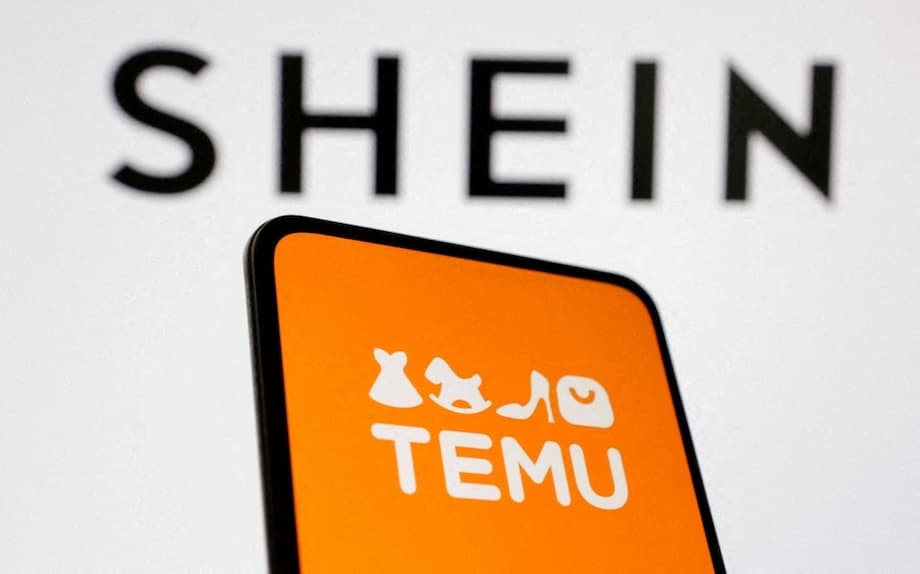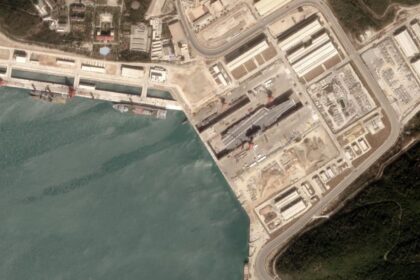Why the EU Is Sounding the Alarm on Shein and Temu
In recent months, the European Union has intensified its scrutiny of Chinese online retail giants Shein and Temu, raising urgent concerns about the safety of millions of products entering the European market. The EU’s justice commissioner, Michael McGrath, has publicly expressed shock at the scale and severity of hazardous goods being sold through these platforms, highlighting a growing crisis in consumer protection and regulatory enforcement.
- Why the EU Is Sounding the Alarm on Shein and Temu
- What Products Are Raising Red Flags?
- How Are Shein and Temu Responding?
- Regulatory Crackdown: What Is the EU Doing?
- Global Perspective: Not Just a European Problem
- Health and Environmental Risks: What Consumers Need to Know
- Industry Response and the Road Ahead
- In Summary
With over 12 million low-value parcels arriving daily from non-EU sellers—most of them from China—the EU’s consumer protection systems are under unprecedented strain. The rapid rise of Shein and Temu, both known for their ultra-cheap, trendy products, has not only overwhelmed customs and safety checks but also exposed European consumers to a range of dangerous goods, from toxic children’s toys to cosmetics containing banned chemicals.
What Products Are Raising Red Flags?
Investigations by EU authorities, consumer groups, and independent laboratories have uncovered a disturbing array of safety violations in products sold on Shein and Temu. Some of the most alarming findings include:
- Baby soothers with loose beads and no airflow holes, posing a serious choking risk.
- Children’s raincoats and clothing containing toxic chemicals, including phthalates and formaldehyde, at levels hundreds of times above legal limits.
- Sunglasses lacking UV protection, exposing users to potential eye damage.
- Shorts and jackets with excessively long drawstrings, creating trip and strangulation hazards.
- Cosmetics containing butylphenyl methylpropional (Lilial), a substance banned in the EU since 2022 due to its links to fertility issues and fetal development risks.
- Children’s toys with small parts, sharp edges, and chemical hazards, including excessive boron in slime kits and high levels of lead in sandals.
These findings are not isolated to the EU. Authorities in South Korea, the United States, and South Africa have also reported hazardous levels of carcinogens, hormone-disrupting chemicals, and other toxins in products from these platforms. For example, Seoul’s environmental health team found Shein shoes with phthalates 229 times the legal limit and Temu sandals with lead levels 11 times above the permissible threshold.
Understanding the Chemicals: Phthalates, PFAS, and Lilial
Many of the chemicals found in these products are known to pose serious health risks:
- Phthalates are used to make plastics flexible but are classified as endocrine disruptors, interfering with hormone systems and linked to reproductive harm, infertility, and cancer.
- PFAS (per- and polyfluoroalkyl substances), often called “forever chemicals,” are highly persistent in the environment and associated with immune system disruption, developmental issues, and increased cancer risk.
- Lilial (butylphenyl methylpropional) is a fragrance ingredient banned in the EU for its potential to affect fertility and fetal development.
These substances can be absorbed through the skin, inhaled, or ingested, especially by children, making their presence in everyday items like toys, clothing, and cosmetics particularly concerning.
How Are Shein and Temu Responding?
Both Shein and Temu have issued statements defending their safety protocols and promising swift action when violations are found. Shein claims to invest millions in compliance and safety initiatives, including partnerships with international testing centers and the removal of hundreds of non-compliant vendors. Temu asserts that it employs strict seller vetting, proactive monitoring, and rapid takedowns of unsafe products, working with global certification organizations such as TÜV SÜD, SGS, and Bureau Veritas.
However, consumer advocates and regulators argue that these measures are insufficient. The sheer volume of products and the reliance on third-party sellers—often based outside the EU—make it difficult to ensure consistent compliance. Unsafe products are frequently removed only after being flagged by authorities or consumer groups, by which time they may have already reached thousands of consumers.
Consumer Group Investigations and Legal Complaints
European consumer organizations have played a crucial role in exposing safety violations. The European Consumer Organisation (BEUC) and national groups in Denmark, Italy, and the UK have conducted extensive testing, finding widespread non-compliance in toys, cosmetics, and household goods. In February 2025, 24 consumer organizations from 21 countries filed a formal complaint with the European Commission against Shein, alleging deceptive sales tactics and product safety breaches.
As the Cyprus Consumers Association stated, “We urge intervention if SHEIN does not take corrective measures to prevent serious consumer harm until it fully complies with European legislation.”
These complaints have prompted the European Commission to launch investigations into both Shein and Temu, with the possibility of stricter enforcement and new regulations on the horizon.
Regulatory Crackdown: What Is the EU Doing?
The EU is considering a range of measures to address the flood of unsafe products and restore consumer confidence:
- Abolishing the €150 duty-free threshold for imports, which currently allows low-value packages to enter the EU without customs checks or import duties. This loophole has enabled platforms like Shein and Temu to ship billions of parcels cheaply and with minimal oversight.
- Introducing handling fees on incoming parcels to fund more rigorous customs inspections and deter non-compliant shipments.
- Establishing a central EU customs authority to coordinate enforcement and data sharing across member states, replacing the fragmented national systems that are currently overwhelmed.
- Expanding the Digital Services Act (DSA) to hold online marketplaces legally liable for dangerous and illegal products sold on their platforms, not just for their own direct sales but also for those of third-party vendors.
These reforms would bring the EU in line with recent actions in the United States, where duty-free thresholds have been slashed and additional taxes imposed on low-value imports from China. The aim is to level the playing field for European businesses, which must comply with strict safety and environmental standards, and to protect consumers from the risks posed by unregulated imports.
Secret Shopper Operations and Safety Gate Alerts
The EU has also launched secret shopper operations to gather evidence of regulatory violations and is leveraging the Safety Gate rapid alert system to warn member states of unsafe products. In 2024, Safety Gate recorded a record 4,137 alerts, with over a third related to cosmetics, followed by toys and electrical appliances.
Commissioner McGrath emphasized, “I am determined that we step up our enforcement of our product safety laws and our consumer protection rules. It’s not only about protecting consumers, but there is a very serious level playing field issue here for European businesses.”
Global Perspective: Not Just a European Problem
The safety concerns surrounding Shein and Temu are not confined to Europe. Regulatory bodies in South Korea, the United States, and South Africa have all issued warnings or taken action against hazardous products from these platforms. In South Korea, weekly inspections have uncovered carcinogenic substances in clothing and accessories, with some items exceeding legal limits by hundreds of times. The US Consumer Product Safety Commission has recalled tens of thousands of children’s sleepwear sets from Temu due to fire hazards, and Malta’s Consumer Council has ordered the removal of shoes containing high levels of heavy metals.
These findings underscore the global nature of the problem. As Shein and Temu expand their reach, the risks associated with poorly regulated supply chains and lax safety standards become a worldwide concern.
Why Are These Platforms So Popular?
Shein and Temu have achieved explosive growth by offering a vast array of trendy, low-cost products and leveraging aggressive marketing tactics. Features such as flash sales, countdown timers, and gamified shopping experiences encourage impulse buying and repeat visits. Their business model relies on direct shipping from Chinese factories to consumers, bypassing traditional retail channels and customs checks.
However, this model also makes it difficult to trace the origin and safety of individual products. Many items are produced by small, anonymous suppliers who may not adhere to international safety standards. The lack of an EU-based responsible party for many products further complicates enforcement and accountability.
Health and Environmental Risks: What Consumers Need to Know
The presence of toxic chemicals in clothing, toys, and cosmetics is not just a regulatory issue—it poses real health risks, especially for children and vulnerable populations. Chemicals like phthalates, lead, and PFAS can cause a range of problems, from developmental and reproductive harm to cancer and immune system disruption. These substances can persist in the environment, contaminating water and soil, and may not be removed by washing or everyday use.
Experts advise consumers to be cautious when purchasing ultra-cheap products from online marketplaces, especially those that come into direct contact with the skin or are intended for children. Look for certifications such as the EU Ecolabel, OEKO-TEX, or GOTS, which indicate compliance with higher safety and environmental standards. Buying from reputable stores within the EU and avoiding products with unclear origins or missing safety information can also reduce risk.
As one consumer safety advocate put it, “Consumers should be aware that the lowest price often comes at the expense of safety and quality. It’s important to make informed choices and demand greater accountability from online platforms.”
Industry Response and the Road Ahead
While Shein and Temu have pledged to improve their safety protocols, the recurring discovery of hazardous products suggests that voluntary measures are not enough. Industry groups like Toy Industries of Europe (TIE) have called for online marketplaces to be held legally accountable when no EU-based operator is responsible for product safety. TIE’s testing found that 95% of toys purchased from Temu failed to comply with EU safety rules, with 18 out of 19 posing real risks to children.
The EU’s proposed reforms, including stricter customs checks, liability for online marketplaces, and the closure of tax loopholes, represent a significant shift in how cross-border e-commerce is regulated. If implemented, these measures could force platforms like Shein and Temu to overhaul their business models, invest more in compliance, and take greater responsibility for the safety of the products they sell.
For consumers, the message is clear: while the convenience and affordability of online shopping are appealing, vigilance is essential. Regulatory authorities, consumer groups, and industry watchdogs will continue to monitor the market and push for stronger protections, but individual choices and awareness remain a crucial line of defense.
In Summary
- The EU has raised urgent concerns about hazardous goods sold on Shein and Temu, including toys, clothing, and cosmetics containing banned or toxic chemicals.
- Investigations have found widespread safety violations, with products exceeding legal limits for substances like phthalates, PFAS, lead, and Lilial.
- Both platforms claim to have strict safety protocols, but consumer groups and regulators argue these are insufficient given the scale of violations.
- The EU is considering major regulatory reforms, including abolishing the duty-free threshold, imposing handling fees, and holding online marketplaces legally liable for unsafe products.
- Similar safety concerns have been reported in South Korea, the US, and South Africa, highlighting the global nature of the problem.
- Consumers are advised to buy from reputable sources, look for safety certifications, and be cautious with ultra-cheap products from online marketplaces.
- The debate over Shein and Temu’s safety practices is likely to shape the future of global e-commerce regulation and consumer protection.












